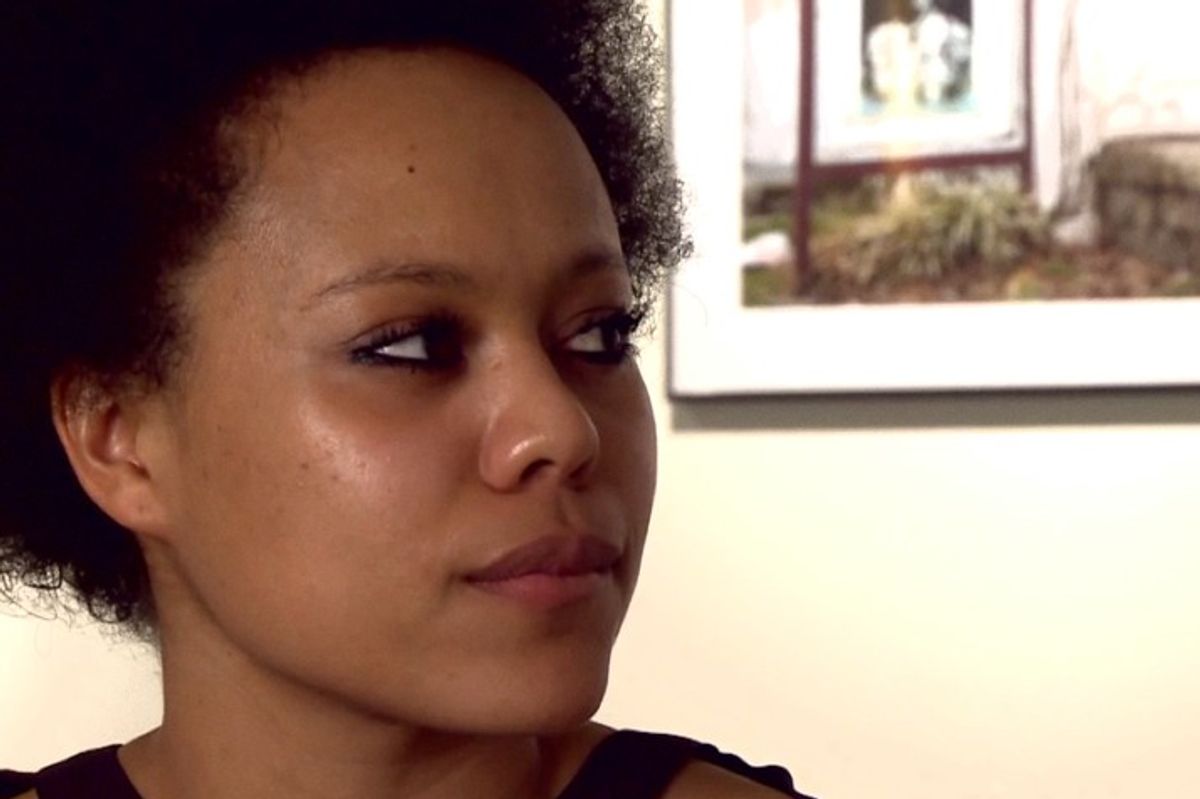
Hannah-Price
To continue reading
Create a free account or sign in to unlock more free articles.
By continuing, you agree to the Terms of Service and acknowledge our Privacy Policy
Register
The content is free, but you must be subscribed to Okayplayer to continue reading.
THANK YOU FOR SUBSCRIBING
Join our newsletter family to stay tapped into the latest in Hip Hop culture!
Login
To continue reading login to your account.
Forgot your password?
Please enter the email address you use for your account so we can send you a link to reset your password:

Photographer Hannah Price turns the lens on objectification in Philadelphia with City Of Brotherly Love - a photo series capturing the faces of men who have cat called her during her daily travels. Price began the project after relocating to Philadelphia from Colorado and noticing the increased amount of unsolicited attention she received upon settling in the city. The photographs are taken by Price, who snaps pictures of the men as they attempt to get her attention or after she has indulged their attempts to engage in conversation and asked to take their pictures. Price's project breaks down the power dynamic that allows cat callers to feel their behavior is socially acceptable by exposing them as individuals instead of leaving them to the insulation of anonymity as mere passers by whose faces are often lost to the crowd and the short term memory of women who would usually prefer to forget them. The project focuses primarily on men of color whose outward ethnic identities are familiar to Price, who is Mexican and black. The project's portraits are broken up by shots of objects and places that seem to have no relation to the subjects, allowing viewers to interpret the collection in a number of different ways. Price recently spoke to NPR about the project, its personal importance and its creative and social proximity to Tatyana Fazlalizadeh's street art campaign entitled Stop Telling Women To Smile:
On why she started making these portraits
It was just a reoccurring thing that I noticed, and that just threw me off guard, I just never really experienced it before. I just started reacting.
On what made her want to start documenting catcallers
I just started doing it. It was another way for me to just deal with it on another level besides avoiding it. Sometimes it's easier to ... just respond and confront people. And then just talking to people, you find out more about them than your initial [impression].
... It was more of like, "Here was a change in my life and it was something really apparent that I noticed."
On how she responded to catcallers before and during this project
Well, I mean the first initial response is avoiding [it], you don't want to. It's just an everyday thing to men and women, and it was just — yeah — one moment, I just started talking to people and I just realized that I could make their portraits and make something of it.
Some of them say "no" and if they say "no," I don't make their photo afterward. But most of them, the majority of them, respond quite well just 'cause I'm responding. Because usually it's expected of me to avoid them so I'm responding. They want a response, so usually they're pretty happy about it — about me talking to them. ...
I explain to them that I'm a photographer and I'm interested in making a portrait.
On Brooklyn artist Tatyana Fazlalizadeh's catcalling portraits
I think, it's good and I think it's ... I've definitely had those feelings and those frustrations before. And I mean it just shows, it's just another example of the power dynamic of how men decide to express their attraction. ... She's just saying, "No, stop. You don't have a right."
There were moments when I decided not to approach someone, like if I felt uncomfortable, I would avoid them. I didn't want to put myself in any danger. So it's not like I respond to every single person. ... It depends on how I was feeling that day. If I felt like photographing or not, or if I felt like talking to this stranger. Sometimes you don't really feel like talking to people and sometimes I would have a really bad day.
On whether she's taking a stand against catcalling
I'm not trying to stop catcalling. I think a given thing, especially for an urban community ... it's more just an experience that I had, and a way for me to deal with it. I ended up making a relationship; I ended up taking time to spend time with people who threw me off guard and ended up making something beautiful out of it.
Check the footage below to hear more about the ongoing project and photographs contained in the exhibition of City Of Brotherly Love from Hannah Price. Learn more about the continued works of photographer Hannah Price at hannahcprice.com Read the full interview via NPR.
Spotted at NPR